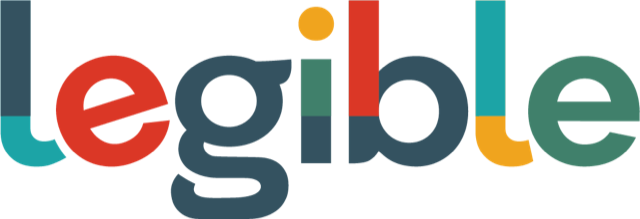The Responsible use of GeoSpatial Data
Facilitator: Ed Parsons
Progress on developing a framework for the responsible and ethical use of Geospatial tools and dataMinutes (including discussions that were not audio-recorded)
Transcript
Welcome everyone, my name's Ed Parsons, I'm the co-chair of a group who's working as part of a spatial data on the web working group to discuss and really use discussion, on some ideas around the responsible use of geospatial technology particularly with reference to the relatively new technologies that allow us to be tracked, to locate ourselves in real time as we move around the world, and the data that information creates.
Today we've got a presentation of a few slides, just to set in context the work that we're doing.
And then most of the discussion hopefully, will be a discussion talking about some of the topics that we've come up against, that it will be useful I think get a broader conversation going.
We're aiming to try to get as much discussion talk, different perspectives on this topic as possible.
It raises important issues of ethics, important issues in where we manage data generally.
We have some ideas, but obviously the more voices that we hear, the better I think.
Hopefully you can all see my slides.
I'm gonna go through those quick presentation now as I said, and then we'll have a discussion later on, which we'll document.
The slides are being recorded just so you're aware of that, and the discussion will be minuted, but not recorded digitally in the same way.
Okay so let's move on.
If you can all see this.
This is the world that we're probably all quite familiar with.
This is a screenshot from a film that was released a few years ago, 28 Days Later" which in a science fiction movie they covered the sudden outbreak of a disease that wiped out much of London. London was an empty deserted place apart from this protagonist walking across Westminster Bridge. To be honest it was a bit like that in the early parts of this year. Obviously we're in a better situation now than then, but still living in unusual times. In an unusual time there's a general focus on some of the capabilities that we have with the geospatial technology that we've been developing over the years. The obvious example for all of us is the emergence of contact tracing apps that look at our proximity. In most cases they look just at the proximity of us as individuals to other individuals. But in some cases in some examples, they're actually recording our absolute location as we move around the planet, to compare that to location of others. This is something that's never really been possible to do at scale. Something I like to term ambient location. The ability for us to identify where we are, as we move around the world, using the devices that we carry around with us. But also potentially external sensors can record our presence in particular environments, in particular locations, and through the use of things like, artificial intelligence, machine learning, image recognition, to actually identify us at those locations in a particular point in time and space. Now you might argue that that's a relevant thing to do, at this point in time, where we're living through a major health crisis, and much of this technology may well be used in very valid and appropriate ways to society. But the issue is, once these technologies are out there, and in widespread use, it's difficult. Normally once you break the alarm, use a technology for a particular requirement, a particular process, that technology is out there. Once we've broken the glass on a fire alarm, the glass is broken. We can't put that back in the box. Therefore we need to develop capabilities to manage this technology appropriately and carefully, for future uses where we're not in the middle of a pandemic for example. Now you might argue, well, clearly there are broader issues of data ethics that W3C and other organizations have discussed over the time. And that's absolutely right. We don't want to go over that great work that's happening elsewhere, and it continues to happen, in privacy and ethics forums. What we want to focus on particularly are those characteristics of spatial data that are specific. That they make spatial data special. They are particular characteristics of spatial data. And I would highlight those from a personal example. It's about the ability to recognize where we are as individuals in time and space. That pattern that we create as we move around the planet, is almost a fingerprint, because no two individuals, will have a similar pattern in time and space, and here's that personal example. This is my location tracking that I've opted into using Google Maps, that has been tracking my location, over time and space. This is a journey I made on, Sunday this week from location. This is the route that I drove, and you can see it identifies where I am, and at what particular time I was in those locations. No one else will share that pattern. If that information is available to others to look at, they can identify potentially me as an individual, because nobody else shared that journey with me, at particular times and particular locations. There are clearly huge benefits in this location sharing. In terms of getting access to emergency services, when I want to dial the emergency, to dial for police, ambulance, fire service, it will be completely appropriate for that information to be shared to those emergency services, for the safety of life. I want in those circumstances my location to be shared. I need that to be done transparently. Similarly location sharing can have negative results. This is an example, that was relatively widely reported earlier on this year, where Peter Weinberg, cyclist in Washington, was mistaken for an Anti-Black Lives Matter protestor, because people had accessed his Strava data online, which he was publishing, and compared that to a very blurry photograph of him. He was then accused of being a protestor, when actually it wasn't him at all. But because he'd been sharing the information about his location as he carried out cycling as part of his exercise, he was doxed to use the terminology, attacked online for something he didn't do. This was just a result of him sharing that fingerprint of spatiotemporal data online. So this is a newly emerging technology base. It's widely used now by all of us, whether we're aware of it or not. And it's an area of concern. So earlier on this year we started to put together a discussion document. That discussion document appears here as an edited draft, on our GitHub repository as part of the spatial data on the web working group. And this is our first effort of looking at some of the questions, some of the topics that we think are appropriate to talk about, in this area of the responsible use of these sorts of tools, and the data that is created by these tools. What we want to do in the rest of this session, in the time that we have remaining, to 50 minutes or so, is to look at some of the topics that we've raised, to identify some other topics, either you might have, that you might think is interesting, if it's something that we should cover, that we should think about, we should research more. I'm gonna put up a slide now that I suppose, some of the key hooks that we think are useful to discussion. As I said we're interested in a more wide debate, and Joe my co-chair, hopefully at this point is going to lead us through this discussion talking about, some of these issues. There are a number of mechanisms that we'd like to get response from you. Initially we have an IRC channel that's live now under the #ResGeo, and I'll go out onto that, and start minuting the discussion that we have. You can also, later on not necessarily as we're having the discussion this morning stroke this afternoon, go to a GitHub repository and identify issues there, if GitHub is your tool of choice. Or alternatively there's an email reflector, that has been set up, public-geospatial-data-use@w3.org Feel free to drop an email there with any views, any comments, any issues you might have around the document, and we will take those onboard as well. So at this point, I'm gonna hand over to Joe, who's gonna start talking about some of these issues, and I will move over to a note-taking mode in the background, and I look forward to your input and your thoughts, whatever they might be. Okay thank you very much.

